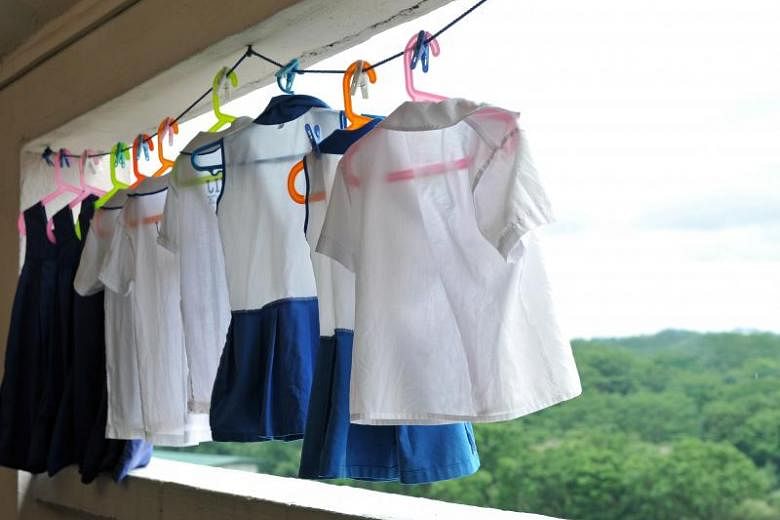It started with the late-June release of a global ranking of pre-school education, that ranked Singapore 29th out of 45 developed and emerging economies. Commissioned by local philanthropic group the Lien Foundation and carried out by the Economist Intelligence Unit, the "Starting Well" Index showed that Singapore lagged behind developed Western countries, New Zealand, South Korea, Hong Kong, Japan or Australia. Its pre-school sector was found to be weak in three areas - availability, affordability and quality.
The Lien Foundation followed up on that report with a set of recommendations from leading child education experts in Singapore calling for the Government to be in charge of pre-school, and to provide it free of charge for all children. This was then chased by an online poll of nearly 1,400 parents here with children of pre-school age. Only 28 per cent of those surveyed gave the thumbs up on the overall standards of the pre-school sector.
Surprised by the poor global showing of Singapore's pre-schools, the public has since been abuzz with talk about the need for a review of the sector. Pre-schools are being seen as the weak link in a national education system that has showed excellence at other levels, and calls are being sounded for the Government to step in to raise their standards.
Who's running the show anyway?
That's the multi-million-dollar question. Or, more accurately, who should be running the show? Singapore's 500 kindergartens and more than 900 childcare centres are all privately run, by a range of operators from the People Action Party's Community Foundation and religious outfits, to clan and grassroots associations. Fees too range from $100 to over $1,000 a month, fetching significant differences in standards. Oversight of the centres is split between the Ministry of Education (MOE) and the Ministry of Community Development, Youth and Sports (MCYS).
Unlike for teachers in government-run schools, who go through standardised training at the National Institute of Education, the training for pre-school teachers is largely left to profit-driven private schools. These are regulated by the Pre-school Qualification Accreditation Committee and the Workforce Development Agency.
The majority of calls at the moment are for the Government to ramp up its involvement in the pre-school sector to correct its current weaknesses. But the exhortations run the gamut from closer supervision to full state control. Some want the Government to run all pre-schools, in the way that the Government now runs public schools. Others want a better rationalisation of the current system, for example, by putting pre-schools under the charge of just one ministry. Still others are asking the authorities to just focus on curbing frequent fee hikes and the training and salaries of pre-school teachers.
There is, at the same time, a countering voice cautioning against greater Government involvement. This group prefers diversity and that the Government certifies rather than runs pre-schools. It does not want Government expenditure and taxes to be raised to fund an expanded state involvement in the sector. It also wants parents to be able to choose their own pre-schools - something of importance, for example, for parents who want church-run pre-schools.
Why does it matter?
At the heart of the matter are two major issues: social mobility and a sustainable population.
This topic has whipped up such debate because pre-school is seen as a early determinant of a child's ability to do well in the subsequent levels of school. Families who can afford it will invariably foot the high fees to get their progeny into the best, or at least most branded, pre-schools. For families restricted by cost or access to lower-quality centres, or none at all, the perception is that their children may be disadvantaged in terms of literacy and other developmental skills even before they start formal schooling. Unless steps are taken to make quality pre-school education available across the board regardless of cost, the existing system may be an impediment to social mobility.
At the same time, as Singapore grapples with its twin demographic challenges of an ageing population and declining birth rates. The high costs of raising a family remain a key consideration for young couples deciding whether to have children. If the perception persists that pre-school is an uneven playing field where a child's future is equated with the amount of money its parents pump into pre-school, young couples will be all the more reluctant to form families. This will do no favours for the country's drive to promote parenthood.
What's next?
The last time this topic was hotly debated - in 1998 - the Government's stand was that "there was no consensus on the benefit of such education or how long the headstart would last", as The Straits Times reported back then.
Even two years ago, then Education Minister Ng Eng Hen said there were no plans to nationalise pre-school education, as it would deprive parents of choice and give rise to counter-productive comparisons between pre-schools. This stand is unlikely to change anytime soon.
In the latest round, though the Government has acknowledged that the issue is important, it has stopped short of issuing any concrete policy responses. Indeed, a common view is that the political response to the Lien Foundation reports and public discourse has been generally lacklustre.
The clearest reply yet came in PM Lee Hsien Loong's National Day message this year, when he said that the Government will work with parents to bring children to more equal starting points for primary school through good and affordable childcare and kindergartens. Hopes are therefore high for the Prime Minister to announce new measures related to pre-school as part of his National Day Rally this year.

